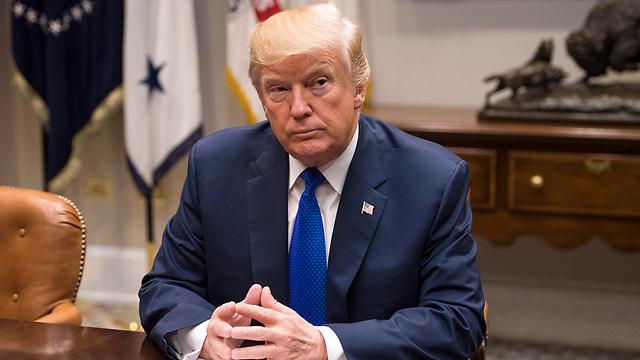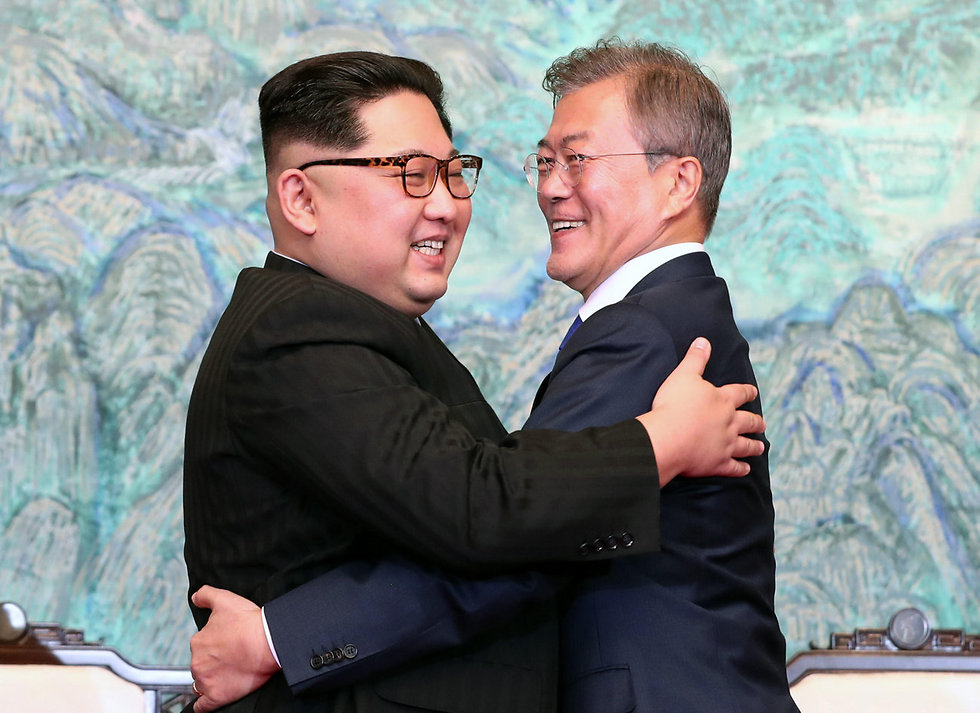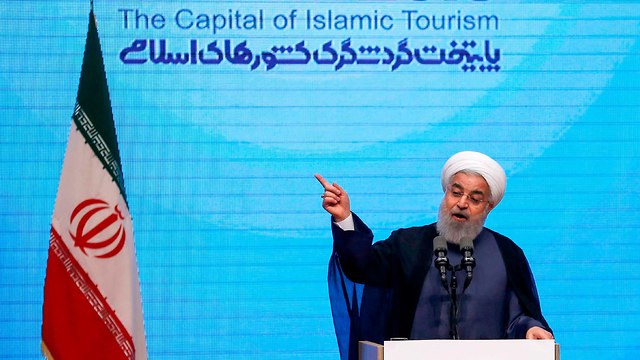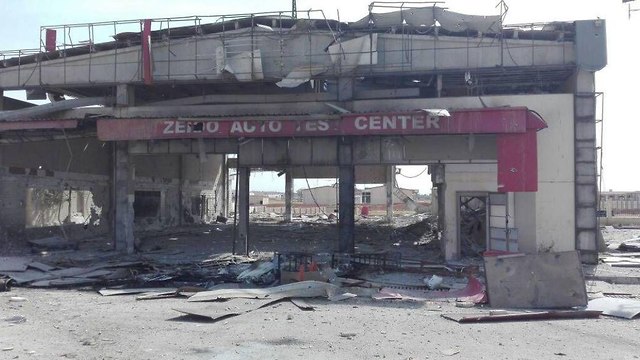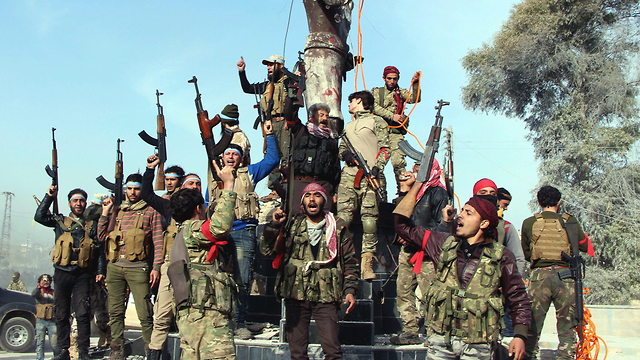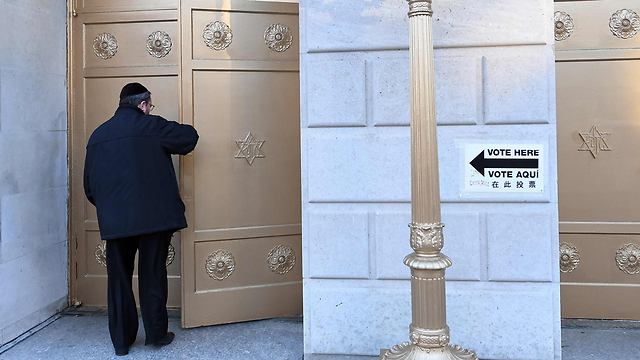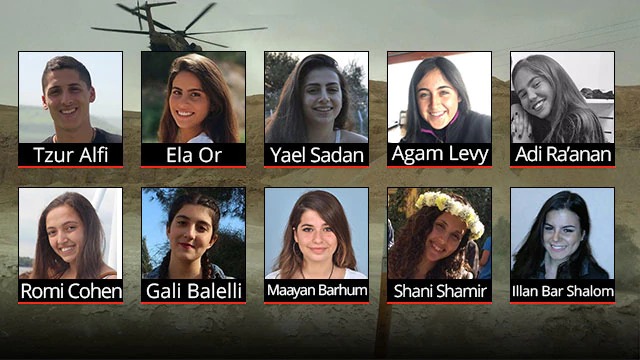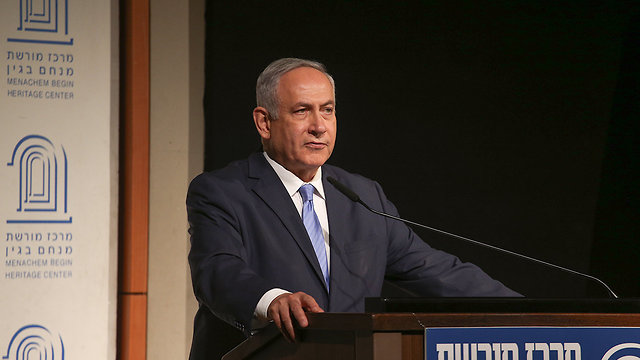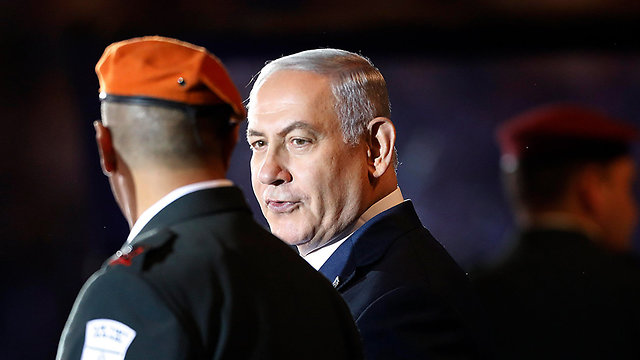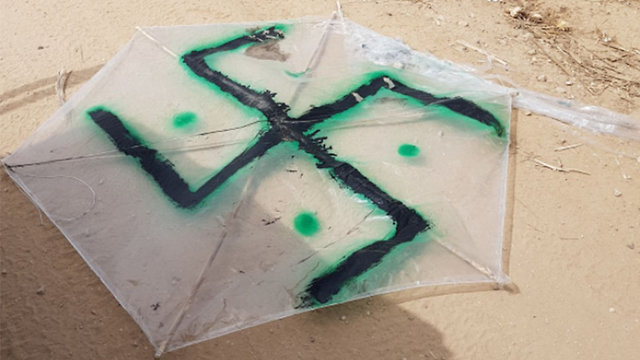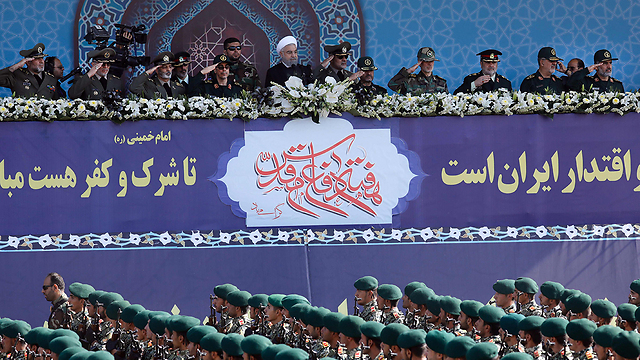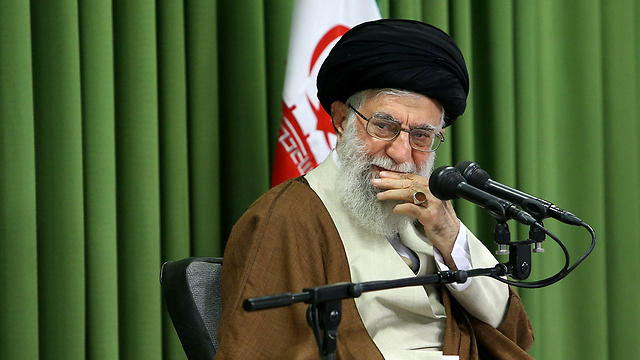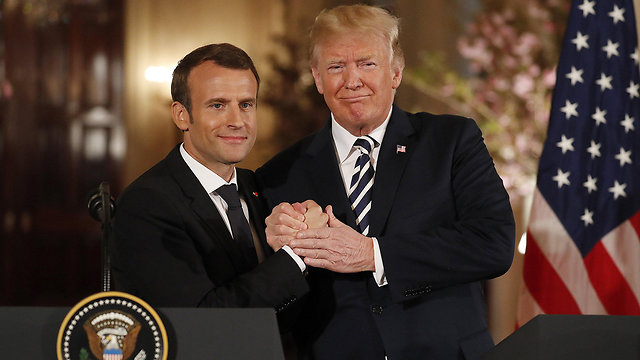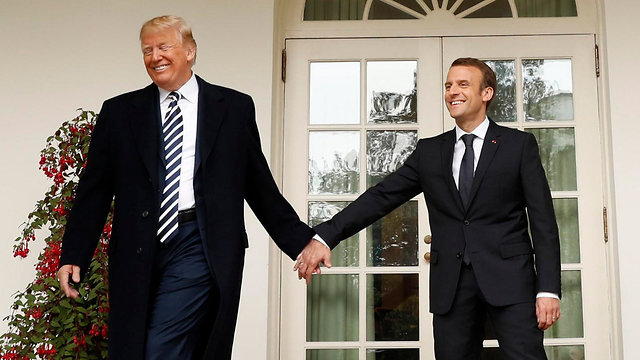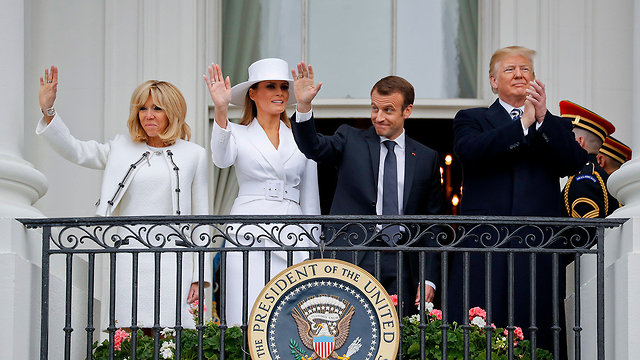Because I have had the honor of serving as a citizen-soldier of the State of Israel, because I have been privileged to found an organization that has brought Israel’s professional and strategic perspective to hundreds of campuses throughout the English speaking world, and because we have briefed, and arranged dozens of briefings for, members of the United States Senate and Congress, I know and recognize a true friend of the State of Israel when I meet one.
Lamentably, such friends are all the more notable because they are a rarity.
Director Mike Pompeo, is one such friend.
I speak on the absolute nature of his commitment to our country because I have had the pleasure of collaborating with Mr. Pompeo at key moments over a number of years.
I first met him in November 2015, amidst the wave of lone wolf terror attacks that maimed and murdered innocent Israelis.
In response to the delegitimization campaign against the Israeli police for the reasonable measures they employed to subdue the attackers, our organization brought about briefings in Washington DC, in Jerusalem and on select college campuses throughout the United States.
The common element to that three pronged campaign was Mr. Pompeo.
On the Hill, he was one of a three member panel of Representatives who attended a briefing by the foreign press spokesperson for the Israeli police.
He insisted upon becoming fully acquainted with the facts and data presented, all while asking the most insightful of questions.

(Photo: EPA)
As we adjourned, Mr. Pompeo informed me that he planned to travel to Israel in the coming days and asked what more he could do to “get this story out there."
It is worthy of note that while many of our own number were canceling their visits because of the terror threat, Mr. Pompeo remained resolute in his desire to come to Israel.
He adjusted his schedule while there in order to visit the police command center where he viewed further footage of the terror attacks. He met with Israeli police officers in order to gain further insight into the challenges they were facing and he released a statement to the press based upon those meetings.
Everything that Mr. Pompeo offered to do, he did. He did so of his own volition.
For that alone, he should be applauded.
Months later, our organization again partnered with the Israeli police to bring their Senior Legal Advisor to select law schools and to Washington DC. His presentations on the Hill centered around a bicameral, bipartisan briefing to legislators and their policy staffers. Not only did Mr. Pompeo host that briefing, he personally introduced the event, outlining the context of the talk for those in attendance, drawing upon his experiences in Israel as he did so. For that alone, he be supported.
Following his appointment as Director of the CIA, we had the pleasure of hosting Mr. Pompeo as the keynote lecturer for our organizational event in New York.
While the content of his comments are not for public circulation, Director Pompeo's stated commitment to our country was unambiguous. His determination to ensure a secure future for the State of Israel was explicitly declared and emphatically conveyed and his recognition that the national interests of the United States are synonymous with a thriving Jewish State was apparent to all present. For that alone, he ought to be commended. And while the broader, domestic, American debate on the matter of who will be Secretary of State is not one in which I will engage, I do wish to address myself directly to some segments of the Jewish Diaspora, who claim that a secure Israel is central to their mission statement, but who vehemently oppose the nomination of Mr. Pompeo out of a stated deference to “Jewish values.” There exists an element within that group which has lost sight of its own priorities. They are in urgent need of a recalibration of their self espoused standards. Such groups cannot and must not be looked upon as the arbiters of which American policy is in the best interests of the State of Israel.
In recent years I have lived through several memorable events resulting from policies affixed in Washington DC. I have done so wearing the uniform of a mobilized combat reservist on more than one occasion. I know that Secretaries of State can bring about a direct, sometimes immediate impact upon the lives of our young men and women in uniform and the citizens they are sworn to defend, therefore.
I believe it to be high time that the holder of the office be someone who is a known friend of Israel, with policies toward our nation that are predicated upon realism, rather than someone whose view toward Israel is unclear and whose policies are predicated upon legacy-building obsessiveness. The ascent of Mr. Pompeo is timely, appropriate and welcomed, therefore. Israelis seek someone whose reassurances ring true, rather than hollow. Recent bearers of the title have lacked that quality.
Secretaries of State deal first and foremost in matters of foreign policy. It is therefore the members of the Jewish community in Israel, not the members of Jewish communities abroad, who will most immediately be affected, for better or for worse, by the actions of the individuals who hold this particular office.
The words and attitudes of Secretaries of State can result in life or death for Israelis. They can embolden the world against us, or blunt the will of those countries who seek to do us harm; whether economically militarily or diplomatically. Heads of Diaspora Jewish organizations must be reminded of the centrality of a secure, self determining Homeland for the Jewish people, within the list of Jewish values. While they may be right to invoke the ethos of loving one's neighbor, of setting the world to rights, or of being a light unto the nations, they are categorically wrong to do so to the exclusion of the highest Jewish value of all; the value of self preservation - pikuach nefesh!
Nothing is more central to the future of Jewish nationhood. It is with far too much abandon that certain groups ignore this reality.

(Photo: Reuters)
Their "leadership" would do well to recall some basic truths as they continue to oppose Mr. Pompeo’s nomination. Firstly, when they call for an alternative nominee, they do so in the absence of any individual with a stronger record of support for Israel. That reality should not be secondary in the considerations of Jewish groups, but primary. For while these groups may support the State of Israel, it will not be they who stand in the battlefield when the call to arms rings out. It will be we Israelis who do so, in Israel.
While these groups may have a commitment toward the State of Israel, it will not be they who leave their loved ones in order to march into the unknown in the defense of their families. It will be we Israelis who do so, in Israel.
And while such groups may view the State of Israel as their Homeland, it will not be their households that are imperiled when the rockets fly and the missiles launch. That will be the fate of Israeli households, in Israel.
It will not be their country upon which the crosshairs of a nuclear Iran will be most immediately trained. It will be upon our country, Israel.
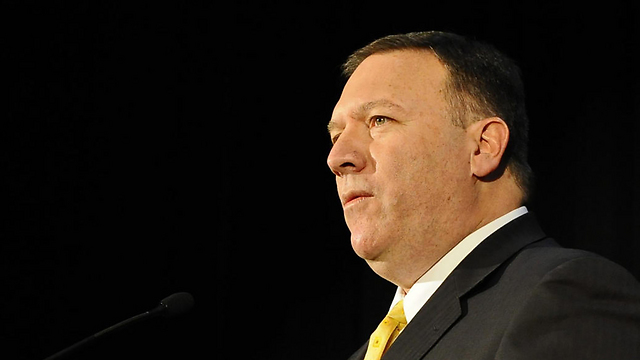
(Photo: EPA)
It is out of deference to those truths, that the nomination of Mr Pompeo ought to be supported by groups claiming to champion the best interests of Israel. Their failure to do so constitutes a dereliction of their duties.
Having worked with his good offices on several occasions, I am certain that Mr. Pompeo applies the same, reasoned, informed and principled approach to all peace-loving nations and peoples throughout the world. Those who seek a world of good neighborliness with the United States and her ally, Israel, will find a friend in Mr. Pompeo
When he says he supports the State of Israel, is committed to our security and believes in taking all measures to prevent Iran from acquiring nuclear weapons, I believe him.
For in my experience with him, he has shown himself to be that rarest of individuals, a man for whom there is no disparity between his words and his deeds.
Sadly, the same cannot be said for certain groups of my own number, who prioritize opposing his nomination above the security of the Israeli people. When they tell me they support Israel, wish to ensure a secure Israel and would do all that is necessary to prevent a nuclear armed Iran, I simply no longer believe them.
I view them askance, and so should all who hold the future of the State of Israel dear to their hearts. They simply do not speak for me. I hope and expect Mr. Pompeo will indeed be confirmed within the coming days. Our countries and our peoples will be better off for it.
Let's block ads! (Why?)
Israelis should trust Pompeo over the Jewish voices opposing him : https://ift.tt/2r0Rp4y


